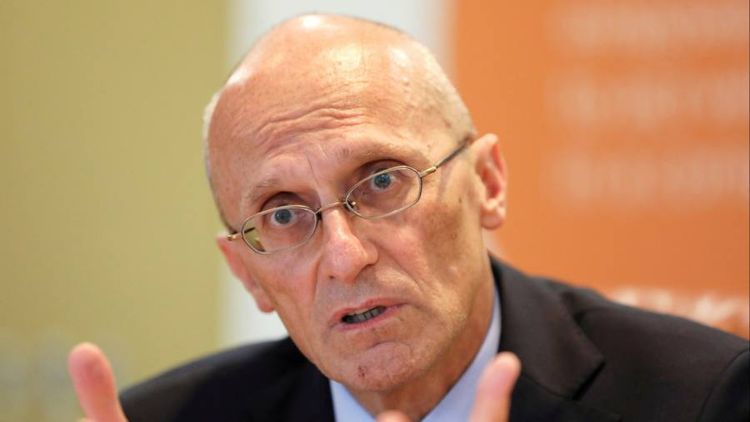ECB Official states that the CDS market taints bank stocks and deposit flows.

According to Andrea Enria, close attention should be paid to the sudden shifts in credit insurance, which is not extensively traded.
Get complimentary notifications on Credit Default Swaps changes.
We'll forward to you an email called "myFT Daily Digest" which will summarize the most recent information on Credit default swaps every day.
The supervisor in charge of the European Central Bank has stated that the trading system in credit default swaps is difficult to understand and is negatively impacting banks' stock prices. This issue could also potentially lead to a situation where individuals begin withdrawing their deposits from these banks in large numbers.
The head of the ECB supervisory board, Andrea Enria, requested an assessment of the market following significant fluctuations in CDS prices that occurred just before a sudden decrease in the stock values of various European banks, such as Deutsche Bank, last Friday.
Enria expressed concern at a conference in Frankfurt that a mere million-dollar investment could heavily affect a bank worth trillions of euros by shifting the CDS spread. This could have a ripple effect on stock values and could potentially cause deposit outflows.
The chaos within the banking industry has drawn attention to the single-name CDS market. These financial instruments act as a form of insurance and provide compensation if a company goes into default. As a result, they are closely monitored to give insight into a company's financial stability.
Responding to a query about the drop in Deutsche's share price on Friday, Enria stated that the CDS market lacks transparency, depth, and liquidity. He suggested that introducing more transparency into the CDS market could be achieved by transferring trading to a central counterparty clearing and the regulatory body, the Financial Stability Board, should investigate it.
The speaker suggested that a significant improvement in this particular market would be to have all the markets cleared in a centralized manner, rather than having all these type of obscure transactions happening in unknown places with unidentified traders.
Shares in Deutsche experienced a significant decline of around 14% on Friday, which led to German chancellor Olaf Scholz dismissing any similarities between this bank and Credit Suisse. The latter was compelled to be saved by UBS over a weekend. Although Deutsche's shares have improved to some extent, they are still down by 20% within the last month.
The trades for derivatives have a low volume. Last year, in the last three months, only nine trades per day occurred on average for Deutsche's CDS. Even though it is one of the most commonly traded, this information comes from the US's Depository Trust and Clearing Corporation. However, it is not certain how frequently these trades occurred this month.
Two weeks ago, the Deutsche bank had a five-year CDS of less than 100 basis points. However, by last Friday, the CDS had risen to over 200 basis points. This increase in concern came from the possibility that the Deutsche bank may be facing similar pressure as three US regional banks that failed and Credit Suisse's sale to UBS.
At the same time, hedge funds were increasing their wagers against Deutsche's shares. S&P Global Market Intelligence revealed that short interest climbed from under 2 percent to over 3 percent, which is the highest it has been since May.
According to official documents, Marshall Wace, a prominent European hedge fund firm, had a short position against Deutsche that accounted for 0.61% of the company's shares as of the previous Friday.
According to Andrea Seminara, who is the CEO of the asset management company Redhedge, if a company experiences an increase in their CDS spreads, this will cause their bond spreads in all areas of capital structure to expand. Additionally, their stock price will also be negatively impacted.
He stated that during times of market unrest, the CDS spreads and share price of a bank are typically interconnected since they both signify a heightened risk premium and apprehension regarding the bank's creditworthiness.
Last month, Credit Suisse's CDS increased significantly, going from less than 400 basis points to over 1,000 basis points. This is a reflection of concerns about their financial situation, which happened just before they were acquired by UBS.
According to the International Swaps and Derivatives Association, the overall market value of CDS contracts for individual companies increased to $108.5 billion in the middle of the year 2022. This represents a significant rise of more than 50% from the same time the previous year.
Enria emphasized the need to keep an eye on banks' business models and their sustainability, as they were key factors in the failure of Silicon Valley Bank and Credit Suisse. However, he dismissed the idea of revamping banking regulations worldwide following these recent setbacks. He cautioned against being hasty in making big changes and advised against discarding everything along with any potential drawbacks.



















































